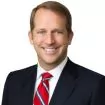In a long-anticipated action, the Centers for Medicare & Medicaid Services ("CMS") issued earlier today (November 4, 2021) emergency regulations requiring all eligible staff who work at health care facilities that participate in the Medicare and Medicaid programs to obtain a COVID-19 vaccine by January 4, 2022. According to CMS, the new requirement will apply to roughly 76,000 providers and over 17 million health care workers across the United States.
Under the new rule, covered facilities have until December 5, 2021, to establish a policy ensuring all eligible staff have received the first dose of a two-dose COVID-19 vaccine or a one-dose COVID-19 vaccine prior to providing any care, treatment, or other services. All eligible staff must be fully vaccinated—i.e., have received either two doses of Pfizer or Moderna or one dose of Johnson & Johnson—by January 4, 2022. Importantly, a facility must provide reasonable time and paid leave for employees to receive the vaccines and recover from any side effects.
In addition, the regulations provides for exemptions based on recognized medical conditions or religious beliefs, observances, or practices. To that end, it requires facilities to develop a similar process for authorizing such exemptions consistent with federal law.
The regulations broadly applies to any facility where employees deliver health care services or health care support services. According to CMS, this includes, but is not limited to, ambulatory surgical centers, hospices, Programs of All-Inclusive Care for the Elderly ("PACE"), hospitals, long-term care facilities, clinics, as well as community mental health centers. Although CMS has already required that nursing home workers get vaccinated against the virus, the new regulations seek to increase COVID-19 vaccination rates among health care workers more generally and create a consistent standard across the federal health insurance programs.
Similarly, the wide-ranging regulations covers any staff who has interacted with other staff, patients, residents, clients, or PACE program participants in any locations. Under this definition, eligible staff includes administrative staff, facility leadership, volunteers, and even housekeeping and food services workers. However, individuals who provide services on a 100 percent remote basis are not subject to the emergency regulations and therefore need not take any action by the January 4 deadline.
According to the interim final rule, CMS will monitor compliance with these requirements using existing survey and enforcement processes. If a health care facility does not abide by the requirements, it will be given a warning and have an opportunity to bring itself into compliance before additional actions occur. While CMS emphasized that its goal is to have all health care providers comply, it stated it will deploy its full enforcement authority as needed to achieve that goal.
The emergency regulations modify conditions of participation (commonly referred to as CoPs) for a variety of CMS-regulated facilities that accept Medicare and Medicaid. The CoPs are among the most important regulations related to health care facilities, as they determine whether a facility is eligible to participate in federal health care programs and receive federal reimbursement. As a result, it is anticipated that hospitals and other facilities will move promptly to implement the required policies and procedures.
CMS has acknowledged the staffing challenges facing facilities, including those resulting from local, state and organizational vaccine mandates and those associated with the increased morbidity, mortality and burnout from COVID-19. These vaccine requirements will likely cause facilities to more carefully evaluate their workforce and staffing needs, and look to transition unvaccinated employees to remote roles (where possible) or other staffing models involving less frequent patient and staff interactions. Facilities will need to balance the need to comply with the CoPs with ongoing challenges involving patient care and staffing shortages across the industry. While the recent OSHA ETS rule allows for weekly testing to replace vaccination for employees, the CMS rule here considered but ultimately rejected such an alternative, placing the choice before facilities and their employees in even starker relief.
The content of this article is intended to provide a general guide to the subject matter. Specialist advice should be sought about your specific circumstances.




